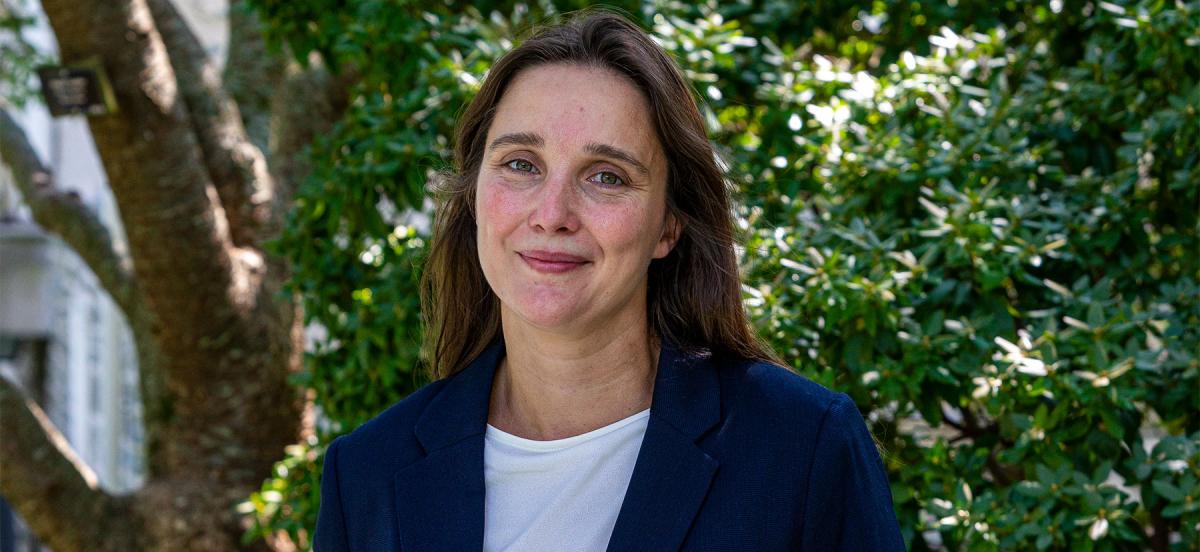Amy Cooke Wins NIH Award

Assistant Professor of Biology Amy Cooke joined the Haverford faculty only two years ago. This year, she earned a NIH grant for her research. Photo by Patrick Montero.
Details
The assistant professor of biology was awarded $421,197 from the National Institutes of Health to support her research on RNA-binding proteins.
Assistant Professor of Biology Amy Cooke has long been interested in how genes are expressed in cells, particularly in the process by which information stored in a gene’s DNA is converted into RNA and then interacts with proteins. Understanding the roles those interactions play in disease and cellular physiology have been the primary objectives of Cooke’s lab at Haverford, where she joined the faculty in 2020. That research will now be supported by a $421,197 award from the National Institutes of Health.
“My lab currently focuses on an RNA-binding protein termed YBX3, because, as a postdoctoral fellow, I showed that YBX3 controls import of amino acids into human cells,” said Cooke. “My lab has moved to understand if this regulation is critical in skeletal muscle, as amino acids are critical in this tissue and YBX3 is highly expressed in the skeletal muscle system. In addition, we are looking at how YBX3 can regulate RNAs that it binds directly.”
Thanks to the NIH grant, she has funding for research reagents, a post-baccalaureate research assistant, and summer undergraduate research assistants.
Cooke has been supported in this work by several Haverford students already. The first group of seniors in her lab—Mali Axinn ‘21, Charith Wijeyesekera ‘21, Zachary Bressman ‘21, and Alice Youle ‘21—produced preliminary data last year that was, said Cooke, “essential in securing the funding.” The students in her lab this year—Isabelle Johnson ’22, Jeremy Lavietes ’22, Justin Adler ’24, Kristen Min ’23, Max Elliot ’22, Silina Awad ’24, William Skipper ’22 and Will Vostrejs ’22—are continuing that work, including the five seniors who are conducting research related to different parts of the grant for their senior theses.
“This study allows me to give opportunities to undergraduates to delve deeply into the project and give students valuable hands-on experience in cutting-edge research that would not be sustainable without the support,” she said.



